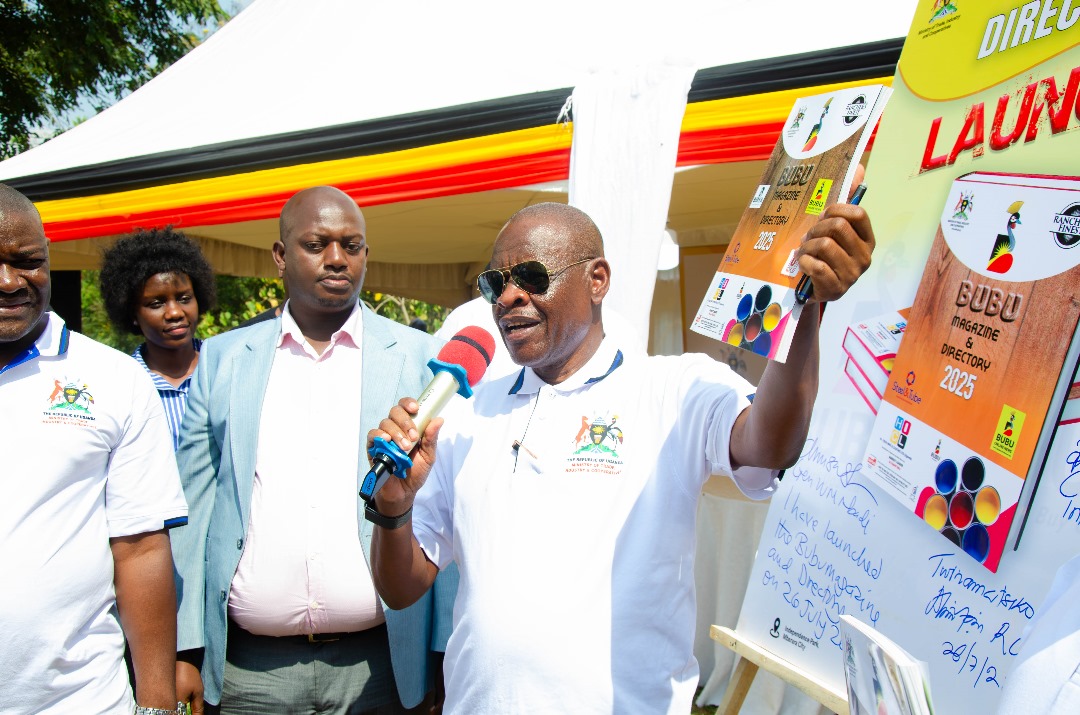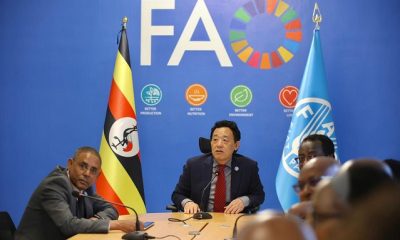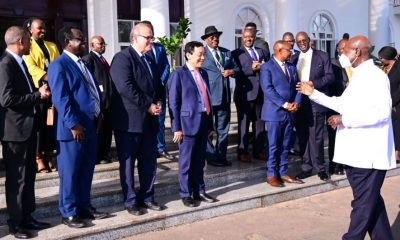Agriculture
Local Manufacturers Call for Easier Product Certification to Compete Globally
Local manufacturers in Uganda are urging the government to streamline and reduce the costs associated with registering and certifying locally made products, citing barriers that hinder their participation in international markets.
The appeal was made during the official opening of the first-ever Buy Uganda Build Uganda (BUBU) Western Trade Expo in Mbarara City on Saturday. The three-day event has attracted over 1,000 traders and exhibitors, showcasing a wide array of locally produced goods and services from across the region.
While lauding the BUBU initiative, manufacturers expressed concern that the high cost of certification, coupled with a complex and bureaucratic registration process, is stifling the growth of Uganda’s small and medium enterprises (SMEs).
“The process is too expensive and unfriendly,” lamented Julius Bigabwa, director of Biglad Agri Tourism Farm in Kiko Town Council. “The Uganda National Bureau of Standards (UNBS) demands over Shs 3 million for certification, yet many of us start with less than Shs 1 million in capital. Where do you expect us to get that kind of money?”
Bigabwa warned that without deliberate government intervention, the goals of BUBU will remain unattainable for most local businesses.
Hillary Ankunda, director of Nulia Confectionaries in Ibanda Municipality, questioned the government’s decision to grant tax waivers to foreign companies while neglecting the financial struggles of local entrepreneurs.
“We are the ones building this country from the grassroots up, yet we are ignored,” Ankunda said. “If foreign investors get incentives, why not us, the local manufacturers, who are working with almost nothing?”
Simon Mwijuka, chairperson of the Mbarara City Traders Association (MBACITA), echoed similar frustrations, criticizing the burdensome taxation system and regulatory hurdles local businesses face.
“You speak of value addition, but how can we add value if we are taxed before we even reach the market?” Mwijuka asked. “The policies in place make it difficult for local manufacturers to grow, let alone compete beyond borders.”
In response, State Minister for Trade, Industry and Cooperatives, Gen. Wilson Mbasu Mbadi, acknowledged the concerns and reaffirmed the government’s commitment to supporting manufacturers through a multi-sectoral strategy.
He revealed that government is expanding access to value addition equipment and establishing regional laboratories to bring product testing services closer to small and medium enterprises (SMEs), reducing both cost and time.
“The government is investing in infrastructure to support you,” Gen. Mbadi said. “Regional labs will help you get your products tested and certified locally. Please take advantage of these opportunities to improve your standards and reach global markets.”
The Buy Uganda Build Uganda (BUBU) policy, launched in 2017 under the Ministry of Trade, Industry and Cooperatives, is aimed at promoting the consumption of locally produced goods and services. Although well-intentioned, manufacturers argue that its success will depend heavily on policies that truly empower domestic producers—especially SMEs.
As the BUBU Expo continues to shine a spotlight on local enterprise, the voices of small manufacturers may finally be gaining traction in shaping the policy decisions that affect their growth and competitiveness.
Comments



























